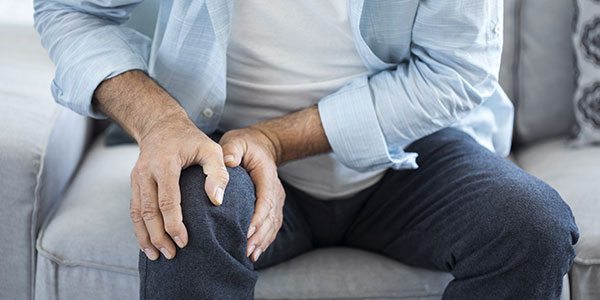Swelling is a silent component behind multiple aspects of the aging process. Many are familiar with the swelling and pain that come with a recent, open wound; these are part of the body’s natural healing process. Generally, the immune system utilizes swelling to fight infection. This process is referred to as acute swelling, however, there is another type of swelling called chronic inflammation that can be triggered by diet, toxins, and stress. This sort of chronic swelling is painless and often undetectable.
How Inflammation Makes You Age Faster
During chronic swelling, the body responds to stimuli outside and inside the body by releasing cells called cytokines and reactive oxygen species. These types of cells start to oxidate your body’s existing cells meaning that they begin to break down slowly. When damage begins to these cells, the body recognizes it as a threat and signals for more swelling in an effort to fight off the supposed intruder. The cycle continues and can cause lots of damage to the body over years without intervention. As damage occurs, functions like movement, balance, and general mobility become more difficult. Predictably, chronic swelling is a symptom of many diseases associated with aging, including diabetes and Alzheimer’s disease.
What You Can Do

Adjust Your Diet
Eating less processed foods with less sugar and trans fat can help to diversify the state of your gut microbes. Other ways to do this are eating foods naturally rich in probiotics, such as yogurt, or taking a probiotic and prebiotic supplement. You can also eat more fruits and vegetables that are rich in fiber. The nutrients found in these types of foods help to nourish the gut environment so that different types of good bacteria can flourish. Adopting a chronobiology-based diet can also help play a critical role in abating oxidative stress, which known to stimulate the aging process.
Practice Self-Care
Ultimately, chronic swelling is a response to stress. Beyond nourishing the body, you must find ways to nourish your mind through the art of self-care. Devote time each day to doing something that brings you joy and relaxation. If you are unsure of what makes you happy, take time to figure it out by trying a variety of different activities. Outlets such as reading, writing, listening to music, meditating and exercising are common stress relievers.
Meditation comes in a plethora of forms. Understanding how to quiet the brain down enough for the body to speak is essential to being able to monitor your state of wellness. Setting a timer on your phone for five minutes per day to sit in front of your favorite window or listen to your favorite music and focus on breath can make all the difference. Breathing deep into the belly engages the parasympathetic nervous system and tells the body that it is safe so that stress (and swelling) can begin to diminish.
Yoga is another approach, as this form of low-impact exercise requires moving in atypical ways. This is hugely beneficial to a body working through chronic swelling. By assuming poses that help circulation and stress management, yoga cues the body to stop eating away at its own cells. Beyond that, nourishment can be localized to one or more areas at a time.
By understanding the effects of diet, microbial gut health, and self-care on chronic inflammation, you have the power to diminish the aging effects drastically, which can ultimately extend and increase the quality of life.





